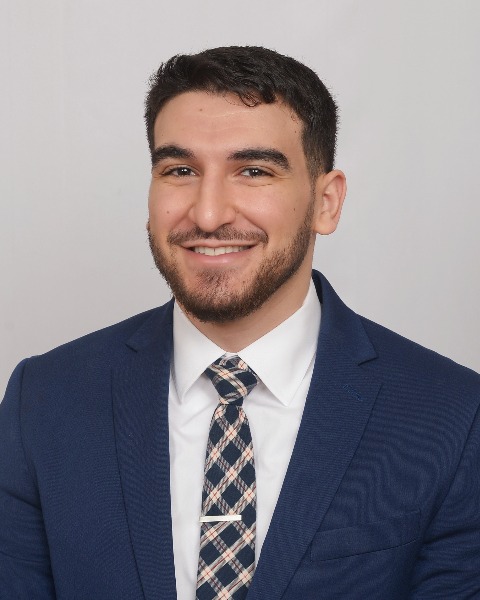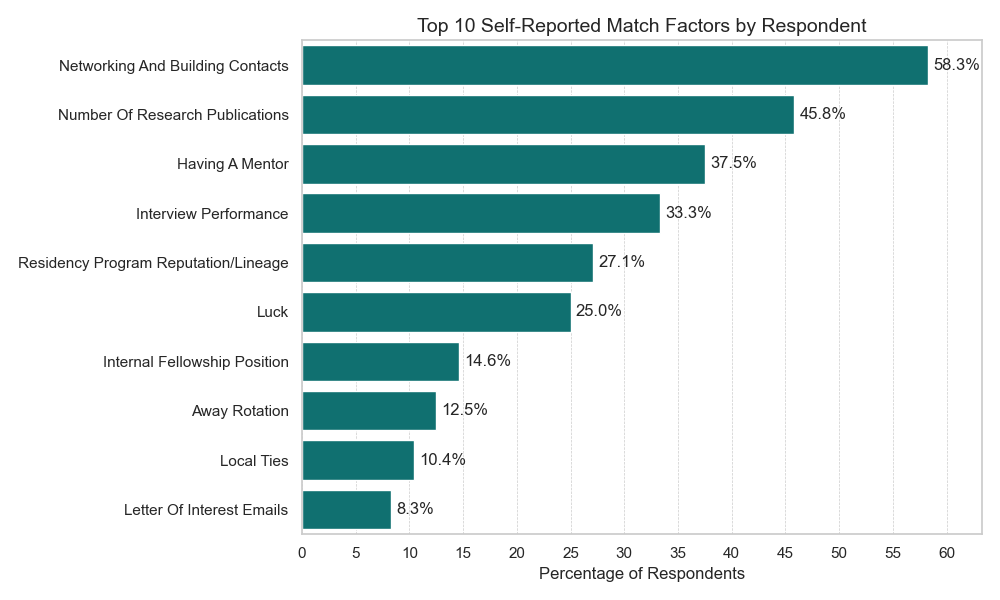Tuesday Poster Session
Category: Practice Management
P6205 - Factors Associated With Successful Gastroenterology Fellowship Match: A Nationwide Survey-Based Study
Tuesday, October 28, 2025
10:30 AM - 4:00 PM PDT
Location: Exhibit Hall

Michael Bebawy, DO (he/him/his)
Rutgers New Jersey Medical School
Newark, NJ
Presenting Author(s)
Srikaran Bojja, MBBS, MD1, Michael Bebawy, DO2, Anusha Kavarthapu, MD3, Menna-Allah Elaskandrany, DO4, Ahmed Al-Khazraji, MD2, Danial Shaikh, MD5
1Geisinger Wyoming Valley Medical Center, Harrison, NJ; 2Rutgers New Jersey Medical School, Newark, NJ; 3SUNY Downstate Medical Center, Staten Island, NY; 4Lenox Hill Hospital, Northwell Health, New York, NY; 5Geisinger Health System, Danville, PA
Introduction: Gastroenterology (GI) remains one of the most competitive internal medicine subspecialties. With USLME Step 1 now pass/fail, applicants increasingly rely on other metrics, such as research productivity. We aimed to identify key factors associated with successful GI fellowship from a national cohort of applicants.
Methods: A national, anonymous survey of GI fellowship applicants from the 2024–2025 match cycle. Responses from 63 applicants across various U.S. residency settings were analyzed. Descriptive statistics summarized demographics, academic profiles, and match outcomes.
Results: Sixty-three GI fellowship applicants completed the survey, with 48 (76.2%) successfully matching. The majority were PGY-3 residents (61.9%), followed by PGY-4 Chief Residents (15.9%), Hospitalists (15.9%), and fellows (6.3%). Most respondents were male (60.3%) and were American Medical Graduates (60.3%). Thirteen applicants (20.6%) were on visa sponsorship, most respondents (35; 55.6%) trained at university-based residency programs.
Among 63 respondents, 48 (76.2%) matched. All 10 PGY-4 Chief Residents (100%) successfully matched, while match rates were 74.4% for PGY-3s, 60.0% for Hospitalists, and 75.0% for fellows. Males and females matched at similar rates. Match rates were 73.5% for AMGs, 72.7% for U.S.-IMGs, and 83.3% for non–U.S. IMGs. Applicants from university-based (80.0%) and university-affiliated (87.5%) programs matched more often than those from community programs (50.0%).
Step 1 scores among matched applicants were most commonly in the 231–250, with 100% match for those >250. Match rates improved with research activity, peaking above 80% for applicants with ≥10 projects. Match success plateaued after ~100 program applications. Applicants with >10 interviews had >84% match rates. Among matched applicants, the most frequently cited contributors to success were networking (58.3%), research (45.8%), mentorship (37.5%), interview performance (33.3%), and program reputation (27.1%).
Discussion: Match success was associated with multiple academic and strategic factors, including USMLE scores and research. These findings highlight the added importance of networking, mentorship, and sustained scholarly engagement in a competitive match process.

Figure: Top 10 matching factors for GI Fellowship match
Disclosures:
Srikaran Bojja indicated no relevant financial relationships.
Michael Bebawy indicated no relevant financial relationships.
Anusha Kavarthapu indicated no relevant financial relationships.
Menna-Allah Elaskandrany indicated no relevant financial relationships.
Ahmed Al-Khazraji indicated no relevant financial relationships.
Danial Shaikh indicated no relevant financial relationships.
Srikaran Bojja, MBBS, MD1, Michael Bebawy, DO2, Anusha Kavarthapu, MD3, Menna-Allah Elaskandrany, DO4, Ahmed Al-Khazraji, MD2, Danial Shaikh, MD5. P6205 - Factors Associated With Successful Gastroenterology Fellowship Match: A Nationwide Survey-Based Study, ACG 2025 Annual Scientific Meeting Abstracts. Phoenix, AZ: American College of Gastroenterology.
1Geisinger Wyoming Valley Medical Center, Harrison, NJ; 2Rutgers New Jersey Medical School, Newark, NJ; 3SUNY Downstate Medical Center, Staten Island, NY; 4Lenox Hill Hospital, Northwell Health, New York, NY; 5Geisinger Health System, Danville, PA
Introduction: Gastroenterology (GI) remains one of the most competitive internal medicine subspecialties. With USLME Step 1 now pass/fail, applicants increasingly rely on other metrics, such as research productivity. We aimed to identify key factors associated with successful GI fellowship from a national cohort of applicants.
Methods: A national, anonymous survey of GI fellowship applicants from the 2024–2025 match cycle. Responses from 63 applicants across various U.S. residency settings were analyzed. Descriptive statistics summarized demographics, academic profiles, and match outcomes.
Results: Sixty-three GI fellowship applicants completed the survey, with 48 (76.2%) successfully matching. The majority were PGY-3 residents (61.9%), followed by PGY-4 Chief Residents (15.9%), Hospitalists (15.9%), and fellows (6.3%). Most respondents were male (60.3%) and were American Medical Graduates (60.3%). Thirteen applicants (20.6%) were on visa sponsorship, most respondents (35; 55.6%) trained at university-based residency programs.
Among 63 respondents, 48 (76.2%) matched. All 10 PGY-4 Chief Residents (100%) successfully matched, while match rates were 74.4% for PGY-3s, 60.0% for Hospitalists, and 75.0% for fellows. Males and females matched at similar rates. Match rates were 73.5% for AMGs, 72.7% for U.S.-IMGs, and 83.3% for non–U.S. IMGs. Applicants from university-based (80.0%) and university-affiliated (87.5%) programs matched more often than those from community programs (50.0%).
Step 1 scores among matched applicants were most commonly in the 231–250, with 100% match for those >250. Match rates improved with research activity, peaking above 80% for applicants with ≥10 projects. Match success plateaued after ~100 program applications. Applicants with >10 interviews had >84% match rates. Among matched applicants, the most frequently cited contributors to success were networking (58.3%), research (45.8%), mentorship (37.5%), interview performance (33.3%), and program reputation (27.1%).
Discussion: Match success was associated with multiple academic and strategic factors, including USMLE scores and research. These findings highlight the added importance of networking, mentorship, and sustained scholarly engagement in a competitive match process.

Figure: Top 10 matching factors for GI Fellowship match
Disclosures:
Srikaran Bojja indicated no relevant financial relationships.
Michael Bebawy indicated no relevant financial relationships.
Anusha Kavarthapu indicated no relevant financial relationships.
Menna-Allah Elaskandrany indicated no relevant financial relationships.
Ahmed Al-Khazraji indicated no relevant financial relationships.
Danial Shaikh indicated no relevant financial relationships.
Srikaran Bojja, MBBS, MD1, Michael Bebawy, DO2, Anusha Kavarthapu, MD3, Menna-Allah Elaskandrany, DO4, Ahmed Al-Khazraji, MD2, Danial Shaikh, MD5. P6205 - Factors Associated With Successful Gastroenterology Fellowship Match: A Nationwide Survey-Based Study, ACG 2025 Annual Scientific Meeting Abstracts. Phoenix, AZ: American College of Gastroenterology.
